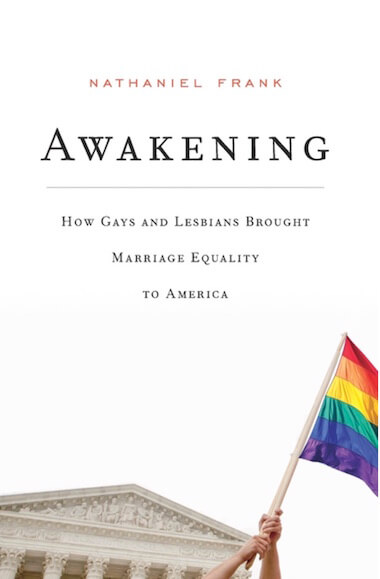A three-judge panel of the Richmond-based US Fourth Circuit Court of Appeals, by a 2-1 vote, ruled on April 19 that District Judge Robert G. Doumar erred by not deferring to the federal Department of Education’s requirement that schools let transgender students use restrooms consistent with their gender identity.
Doumar dismissed a claim by Gavin Grimm, a teenage transgender boy attending high school in Gloucester County, Virginia, that the school violated his statutory rights under Title IX of the Education Amendments Act by adopting a rule that he could use only restrooms designated for girls or unisex single-user restrooms. The court used the plaintiff’s initials to guard his privacy, but the American Civil Liberties Union, which represents Grimm, identifies him by name.
The high school originally accommodated Grimm by letting him use the boys’ restroom when, at the beginning of his sophomore year in August 2014, he informed officials he was transitioning, had gotten a legal name change, and would be expressing his male gender identity. After several weeks without serious incident, some parents, alerted to the situation by their children, objected. At two public meetings, indignant parents threatened board members with political retribution if they did not adopt the restrictive policy.
Appeals court revives Title IX claim by male transgender teen denied access to boys’ restroom in school
Grimm, now 16, has not undergone reassignment surgery, which is not available to minors under prevailing medical standards for treating gender dysphoria, but has transitioned in all other respects and identifies fully as male.
The Fourth Circuit is the first federal appeals court to rule that the Department of Education’s interpretation of Title IX, spelled out by its Office of Civil Rights in January 2015 in response to this controversy, should be followed by the courts. Since North Carolina is also within the Fourth Circuit, this ruling suggests that the “bathroom” provisions of the notorious H.B. 2, at least as they apply to public educational institutions, violate federal law, as the ACLU and Lambda Legal have argued in a lawsuit. That challenge is pending in the US District Court in North Carolina.
Writing for the majority of the panel, Circuit Judge Henry F. Floyd observed that the court is most likely to defer to an administrative agency’s interpretation of a statute when the law and the official regulations adopted by the agency are ambiguous regarding the particular issue in dispute. Title IX says that educational institutions that receive federal funds may not discriminate because of sex. The regulations, adopted decades ago, say that educational institutions may designate separate facilities for use by males and females, so long as the facilities are equal in quality, but never directly address how to deal with transgender individuals whose “biological sex” differs from their gender identity.
The Education Department’s interpretation, Floyd wrote, is entitled to deference “unless the [school] board demonstrates that the interpretation is plainly erroneous or inconsistent with the regulation or statute.”
Judge Doumar concluded that the regulations were not ambiguous and refused to defer to DOE’s interpretation. Floyd devoted a section of his opinion to explaining why the regulations are ambiguous.
“We conclude that the regulation is susceptible to more than one plausible reading because it permits both the [School] Board’s reading –– determining maleness or femaleness with reference exclusively to genitalia –– and the Department [of Education]’s interpretation –– determining maleness or femaleness with reference to gender identity,” he wrote. When language can support alternative readings, there is ambiguity.
“The Department’s interpretation resolves the ambiguity by providing that in the case of a transgender individual using a sex-segregated facility, the individual’s sex as male or female is to be generally determined by reference to the student’s gender identity,” Floyd wrote.
Dissenting Circuit Judge Paul Niemeyer –– also a dissenter in the Fourth Circuit’s 2014 Virginia marriage equality decision –– found that the majority’s conclusion violates the “physiological privacy interest” of students who do not want to share restroom facilities with students whose biological sex differed from theirs. Niemeyer essentially articulated, in more elevated terms, the arguments that North Carolina Governor Pat McCrory has made in defense of the “bathroom” provisions in H.B. 2: that the privacy concerns of students who object to sharing facilities with transgender students should take priority over the interests of the transgender students.
Niemeyer was not quite so crude, though, suggesting that schools could accommodate the needs of transgender students by providing them with unisex single-occupancy facilities. Floyd points out, however, that the DOE’s advice was to provide such facilities to those students not wanting to use multiple-use facilities. And he noted that the school board already made physical modifications in the boys’ restrooms by adding partitions between urinals and taping over visual gaps in the toilet stalls to enhance the privacy of all users.
Floyd emphasized that because Grimm was only contesting the school board’s policy on restrooms, the court did not have to address whether other single-sex facilities, such as locker rooms and shower rooms, would have to be open to transgender students as well. But Niemeyer observed that because discrimination “because of sex” had to mean the same thing throughout the statute and regulations, the majority opinion opened up the door to allowing transgender students to claim a right to access all such sex-designated facilities.
In a footnote, Floyd warned that the school board’s argument –– reiterated in Judge Niemeyer’s dissent –– that allowing biological males into the girls’ restrooms and vice versa could produce “danger caused by ‘sexual responses prompted by students’ exposure to the private body parts of students of the other biological sex’” could be extended to require segregated bathrooms for gay and lesbian students, as well.
Grimm now returns to the district court at square one on his Title IX claim –– and with an unaddressed equal protection claim still alive, as well –– but with the court of appeals decision’s wind at his back on key issues in the case.
Grimm had asked the court of appeals to reassign the case to another district judge, citing comments Doumar made that suggested bias –– or at least a refusal to believe in the validity of gender identity –– with references to Grimm as a girl who wanted to be a boy. Floyd, however, pointed out that none of that objectionable language appeared in Doumar’s written opinion. The court, he wrote, was not going to conclude at this point that Doumar will not give appropriate consideration to the evidence when called upon by the court of appeals to reconsider his ruling.
Senior Circuit Judge Andre M. Davis, agreeing with Floyd that the Title IX claim should be revived, would have gone further, contending that Grimm had satisfied the requirements for a preliminary injunction against the school enforcing its policy. He agreed, however, to “defer to the district court” on the question of an injunction.
Davis added, however, “It is to be hoped that the district court will turn its attention to this matter with the urgency the case poses. Under the circumstances here, the appropriateness and necessity of such prompt action is plain. By the time the district court issues its decision, Grimm will have suffered the psychological harm the injunction sought to prevent for an entire school year.”
Niemeyer’s dissent, reminiscent of his dissent in the marriage equality case, harps on the “unprecedented” nature of the ruling, asserting that the court’s “holding overrules custom, culture, and the very demands inherent in human nature for privacy and safety, which the separation of such facilities is designed to protect.”
Grimm is represented by the ACLU of Virginia and Joshua Block of the national ACLU’s LGBT Rights Project.





































